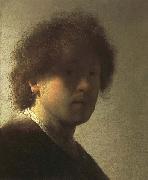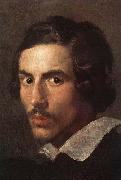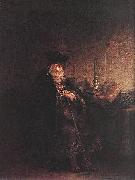Wholesale Oil Painting No Minimum |
|||||||||||
|
|
|||||||||||

|
|||||||||||
|
|
|
||||||||
Rembrandt van rijn1606-1669 Dutch painter, draughtsman and etcher. From 1632 onwards he signed his works with only the forename Rembrandt; in documents, however, he continued to sign Rembrandt van Rijn (occasionally van Rhyn), initially with the addition of the patronymic 'Harmensz.'. This was no doubt in imitation of the great Italians such as Leonardo, Michelangelo, Raphael and Titian, on whom he modelled himself, sometimes literally. He certainly equalled them in fame, and not only in his own country. His name still symbolizes a whole period of art history rightfully known as 'Holland's Golden Age'. In 1970-71 a great exhibition in Paris was devoted to it under the eloquent title Le Si?cle de Rembrandt. A century before, a popular work of cultural history by C. Busken Huet referred to the Netherlands as 'the land of Rembrandt'. His fame is partly due to his multi-faceted talent. Frans Hals was perhaps at times a greater virtuoso with the brush but remained 'only' a portrait painter. Vermeer may have excelled Rembrandt in the art of illusion but was less prolific. Rembrandt was not only a gifted painter but also an inspired graphic artist: he has probably never been surpassed as an etcher, and he often seems inimitable as a draughtsman. His subjects reflect his manifold talent and interests. He painted, drew and etched portraits, landscapes, figures and animals, but, above all, scenes of biblical and secular history and mythology. |
||||||||
|
|
||||||||
Self-Portrait as a Young Man
Self-Portrait as a Young Man Painting ID:: 26783 |
mk52
1628
Oil on wood
22.5x18.6cm
Rijksmuseum,Amsterdam
mk52 1628 Oil on wood 22.5x18.6cm Rijksmuseum,Amsterdam |
|||||||
|
|
||||||||
Gian Lorenzo BerniniItalian sculptor , b. 1598, Napoli, d. 1680, Roma ,Italian architect and artist credited with creating the Baroque style of sculpture. He began his career working for his father, a sculptor. Among his early sculptures are Apollo and Daphne (1622 -C 24) and an active David (1623 -C 24). Under the patronage of Urban VIII, the first of eight popes he was to serve, he created the baldachin over the tomb of St. Peter in Rome. Bernini's architectural duties increased after 1629, when he was appointed architect of St. Peter's Basilica and the Palazzo Barberini. His works often represent a fusion of architecture and sculpture, as in the Cornaro Chapel, in Santa Maria della Vittoria, Rome, with its celebrated theatrical sculpture, The Ecstasy of St. Teresa (1645 C 52). His greatest architectural achievement is the colonnade enclosing the piazza before St. Peter's. |
||||||||
|
|
||||||||
|
|
Self-Portrait as a Young Man
Self-Portrait as a Young Man Painting ID:: 51197 |
c. 1623
Oil on canvas c. 1623 Oil on canvas |
||||||
|
|
||||||||
REMBRANDT Harmenszoon van RijnBorn 1606, Died 1669.One of the great Dutch painters and printmakers of the 17th century, Rembrandt van Rijn is best known for his expressive use of light and shadow (also called chiaroscuro) in his many portraits. Raised in Leiden, he studied with Pieter Lastman (1583-1633) in Amsterdam, then returned to Leiden around 1625 and set up shop as a teacher and portrait artist. Sometime between 1630 and 1632 Rembrandt relocated to Amsterdam, where he spent the rest of his career. Though he had his detractors (some of whom considered him coarse and "low born"), Rembrandt was successful and famous during his lifetime, though he fell on financial hard times in his later years. He was a master printer and produced hundreds of group portraits and historical paintings, including The Anatomy Lesson of Dr. Tulp (1632), The Military Company of Captain Frans Banning Cocq (1642) and Aristotle with a Bust of Homer (1653). His portraits -- including a lifelong trail of intriguing and rather frank self-portraits -- reveal his interest in psychological study and continue to be admired as landmarks in Western art. The Military Company of Captain Frans Banning Cocq is also known as "The Night Watch" because it was thought the painting depicted a nighttime scene. When the painting was cleaned in the 1940s it became obvious that it depicted a daytime scene... He married Saskia van Ulenburgh (also Uylenburgh) in 1634. |
||||||||
|
|
||||||||
|
|
Self-portrait as a Young Man
Self-portrait as a Young Man Painting ID:: 80616 |
Date 1634(1634)
Medium Oil on wood
Dimensions Height: 62 cm (24.4 in). Width: 54 cm (21.3 in).
cjr Date 1634(1634) Medium Oil on wood Dimensions Height: 62 cm (24.4 in). Width: 54 cm (21.3 in). cjr |
||||||
|
|
||||||||
|
REMBRANDT Harmenszoon van Rijn Born 1606, Died 1669.One of the great Dutch painters and printmakers of the 17th century, Rembrandt van Rijn is best known for his expressive use of light and shadow (also called chiaroscuro) in his many portraits. Raised in Leiden, he studied with Pieter Lastman (1583-1633) in Amsterdam, then returned to Leiden around 1625 and set up shop as a teacher and portrait artist. Sometime between 1630 and 1632 Rembrandt relocated to Amsterdam, where he spent the rest of his career. Though he had his detractors (some of whom considered him coarse and "low born"), Rembrandt was successful and famous during his lifetime, though he fell on financial hard times in his later years. He was a master printer and produced hundreds of group portraits and historical paintings, including The Anatomy Lesson of Dr. Tulp (1632), The Military Company of Captain Frans Banning Cocq (1642) and Aristotle with a Bust of Homer (1653). His portraits -- including a lifelong trail of intriguing and rather frank self-portraits -- reveal his interest in psychological study and continue to be admired as landmarks in Western art. The Military Company of Captain Frans Banning Cocq is also known as "The Night Watch" because it was thought the painting depicted a nighttime scene. When the painting was cleaned in the 1940s it became obvious that it depicted a daytime scene... He married Saskia van Ulenburgh (also Uylenburgh) in 1634. Self-portrait as a Young Man Date 1634(1634) Medium Oil on wood Dimensions Height: 62 cm (24.4 in). Width: 54 cm (21.3 in). cjr |
||||||||
|
|
||||||||
|
Prev Next
|
||||||||
|
|
||||||||
|
Related Paintings to REMBRANDT Harmenszoon van Rijn :. |
||||||||
|
|
||||||||
|
CONTACT US |



